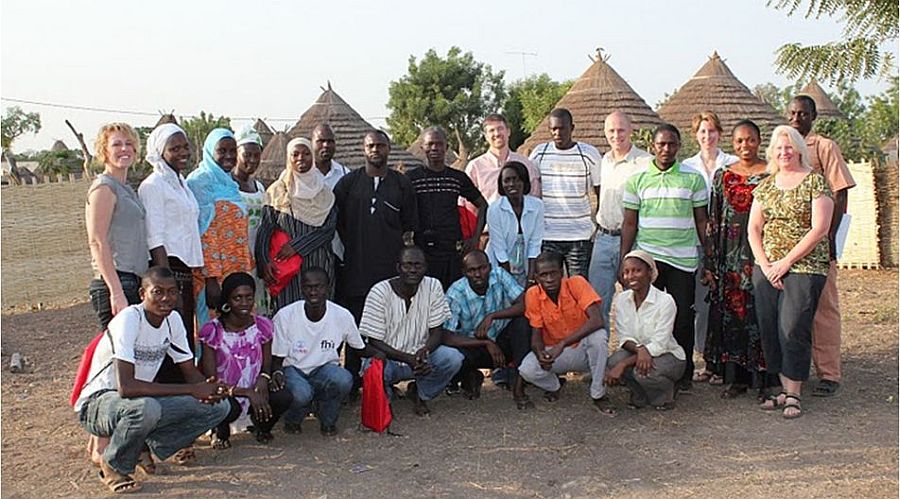Postcard from Senegal, 2/10/2015
body-content

Assalaa maaleykum.
That’s “Peace be upon you” in Pulaar. Greetings from our team, just returned from Senegal!
The past two weeks, we’ve been meeting with our colleagues — clinical staff, community health care workers, district and regional health ministry staff, and U.S. Peace Corps Volunteers — about our project to improve cervical cancer detection in rural Senegal.
Our project trains health care professionals to train their peers to screen for cervical cancer using an effective low-cost, low-tech method.
The health professional examines a woman’s cervix after applying a weak vinegar solution. If precancerous cells are present, they’ll turn white.
This method, called VIA, plays a key role in the World Health Organization’s new strategy for preventing and controlling of cervical cancer, which kills more than 229,500 women in developing countries each year.
The health professional freezes abnormal tissue using a technique called cryotherapy, in which liquid carbon dioxide is applied to the cervix. Women who have complications or more advanced forms of cancer are referred by the local medical staff to regional hospitals or to the major hospital in the country’s capitol, Dakar, for more advanced treatment.
Andrew, a UIC family practice physician, Tracy, who’s an obstetrician and gynecologist from the University of Washington, and I have been working on the project with colleagues in Kédougou since 2010. Working with our excellent Senegalese partners, we have accomplished a lot:
- Developed regional-level cervical cancer prevention clinical guidelines outlining a service accessible to an estimated 10,000 women
- Implemented EngenderHealth-developed Client Oriented Provider Efficient (COPE) cervical cancer quality improvement process
- Trained 60 health workers in VIA through a training-of-trainers approach
- Trained one physician in cryotherapy for pre-cancer treatment
- Conducted the only cervical cancer prevalence study in Senegal outside of Dakar.
CDC’s funding to the Illinois PRC for collaboration in the Global and Territorial Health Research Network allows us to set up a second project in another rural area.
On this trip, we traveled two days from the capital, Dakar, to reach Sédhiou, where we met with local officials and health care providers for three days. Over many cups of tea and plates of yassa (rice and deliciously marinated meats of fish, beef or chicken in peanut butter sauce (maafe), we began building the relationships and plans to set up another program. This time, however, the project will be to train community health workers to train others in VIA, the technique to screen for cervical cancer.
We look forward to telling you more about our work with our wonderful colleagues in Senegal.
Njiiden e jam!
— Karen
ABOUT THE AUTHOR
Karen Peters, DrPH, is clinical assistant professor of community health sciences in the University of Illinois at Chicago (UIC) School of Public Health. She and Andrew Dykens, MD, MPH, of the UIC College of Medicine, are principal investigators of the Illinois PRC’s special interest project in the Global and Territorial Health Research Network. Tracy Irwin, MD, MPH, from the University of Washington, is their co-investigator.